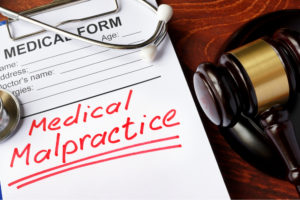If you have problems and pain with your hip, you may be considering or already have had surgery. Unfortunately, there are often problems with hip surgeries, and some patients end up having more problems and pain than they did before.
Keep reading to learn about the troubling success rate for a specific type of hip surgery. If you had hip surgery in Antioch or the surrounding area and are displeased with the results, speak to our Antioch medical malpractice attorneys at The Law Office of Robert T. Edens. Mr. Edens and his staff have fought for the rights of medical malpractice victims for 20 years.
Overview of Surgery For Femoroacetabular Impingement Syndrome (FAIS)
Hip arthroscopy for Femoroacetabular Impingement Syndrome (FAIS) is more common yearly. FAIS is a painful hip condition that has many symptoms, clinical signs, and deformities in the bones. Symptoms can include groin and hip pain, clicking, catching, locking, and stiffness in the hip. Also, some patients have a decreased range of motion in the affected hip, particularly internal rotation and flexion.
To be diagnosed with FAIS, the patient must have bone problems as well as symptoms and clinical signs. Muscle tightness, poor mobility, bone morphology, and a dearth of motor control can lead to discomfort, pain, and even arthritis in the hip.
However, many doctors and surgeons focus only on one aspect of FAIS: problems with the bones. However, the patient outcomes when the focus is only on bone problems could be better, as a recent clinical study showed.
In the study ‘How Many Patients Achieve an Acceptable Symptom State After Hip Arthroscopy for Femoroacetabular Impingement Syndrome?’, researchers asked patients if they had a significant improvement in their condition after surgery. Unfortunately, only 46% of patients reported that the surgery had contributed to a substantial improvement in their condition.
Also, only 40% of patients were happy with their symptoms related to their ability to enjoy their favorite sports. The researchers also cited related studies that found similar results after FAIS hip arthroscopy. In many cases, a favorable outcome to the surgery was approximately 50/50 – a coin flip.
Potential Negative Side Effects Of FAIS Surgery
This surgery can benefit some patients with hip pain, but far from everyone. The study above shows that doctors and surgeons must weigh the possible risks vs. benefits carefully. Some of the possible side effects of the surgery are:
- Nerve damage
- Excessive bleeding into the joint
- Blood clots
- Bone death
- Chronic pain
- Infection
If you had FAIS hip arthroscopy and are displeased with your outcome, you are not alone. Some of these cases could be the basis for a medical malpractice claim, so have your case reviewed by an attorney.
Speak To Our Antioch Medical Malpractice Attorneys
To learn if you have a medical malpractice case, speak to our Antioch medical malpractice attorneys at The Law Office of Robert T. Edens at (847) 395-2200. Since 1991, Mr. Edens and his staff have represented many medical malpractice clients and obtained millions in damages for their clients. His strong success record has earned the law firm the respect of insurance companies; they know Mr. Edens will fight hard for his clients to get the money they deserve.


 Understanding Medical Malpractice
Understanding Medical Malpractice
 Medical malpractice claims are influenced by numerous factors, and are difficult to prove, even though it may seem like an open and shut case to the plaintiff. Generally, when a patient files a claim, it is to recover damages caused due to the negligence or malpractice on part of the doctor, staff, or hospital. However, in order to defend themselves, doctors or hospitals try to pin the blame onto the patient by establishing that they have been negligent with the prescribed treatment that worsened their condition or hampered their recovery.
Medical malpractice claims are influenced by numerous factors, and are difficult to prove, even though it may seem like an open and shut case to the plaintiff. Generally, when a patient files a claim, it is to recover damages caused due to the negligence or malpractice on part of the doctor, staff, or hospital. However, in order to defend themselves, doctors or hospitals try to pin the blame onto the patient by establishing that they have been negligent with the prescribed treatment that worsened their condition or hampered their recovery.